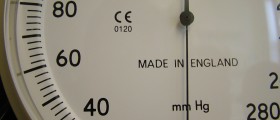
Coumadin
Coumadin is a medication which is used as a prevention of the blood clots, heart attacks and stroke. This medication can be obtained with a prescription from your doctor. You should follow the instructions regarding the usage and dose of Coumadin to avoid additional complications and side effects.Precautions
Your doctor should be informed if you are pregnant or if you are breastfeeding because Coumadin can cause damage to the baby. Also inform the doctor if you are planning pregnancy. Notify your doctor about any medications, supplements or herbal products that you take.While you are taking Coumadin, you may be prone to bleedings, so it is not recommended in cases of any bleeding problems or blood disorders or if you are scheduled for a surgery.
Coumadin is also not recommended if you have had a recent surgery or brain injury. You should not use this medication if you have cancer, stomach problems, kidney disease or any heart disease. Coumadin should not be given to people older than 65. If you suffer from diabetes, rheumatoid arthritis or lupus, or if you have liver disease or problems with the thyroid gland, the dose of Coumadin should be adjusted. You should not make any changes in diet while you are taking this medication.
Side Effects
If you notice any unusual changes, you should contact your doctor as soon as possible. Some of the side effects which are not considered to be very dangerous are mild pain in the stomach, bloating, flatulence, nausea, vomiting and changes in taste. Other side effects are serious and they require urgent medical help. Such side effects may include severe pain in the stomach, pain in the joints or muscles, problems with urination, blood in the urine or stool, blood in the vomit, breathing difficulties and pain in the chest. You may also notice changes in color of your skin; you can develop sudden and severe headache which can be followed by weakness or dizziness; you may experience bleedings from the gums, vagina, rectum, nose or mouth, or you may notice that your skin becomes easily bruised.Other side effects of Coumadin include excessive perspiration, swellings, numbness or tingling sensation, sudden pain in the legs or toes, diarrhea, fever and chills, vision impairment and jaundice.
Allergic Reaction
An allergic reaction to Coumadin may include the symptoms such as tightness in the chest, breathing difficulties, rash, itchiness or irritation of the skin, and swelling of the mouth, tongue or face.
















Your thoughts on this
Loading...